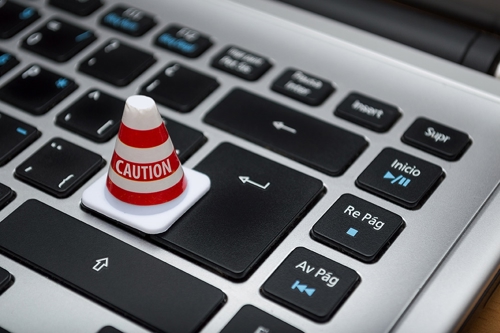The Importance of Copyediting and Proofreading
February 27, 2024

Improving Mental Health and the Work Life Balance in Tech
Mental health is defined by the American Heritage Dictionary as “A person's overall emotional and psychological condition.” There are many influences of our mental health, but given the amount of time and attention that we give to our work, it is easy to see how it is a major influence of our overall well-being.
In our modern workplaces it is easy to feel the desire, need, or requirement to be “always on;” the pressure to perform, be productive, and deliver results at all hours. This can cause our professional and personal lives to become intermingled in a way that few boundaries exist between the two. As this happens one may find that they are participating in their hobbies less, spending less time being active, foregoing family time and checking email instead, and even just staying at the office longer and longer.

At first this kind of behavior may appear to make us more productive, more dedicated, or more appreciated. But in the long-term, the relaxing of such boundaries between personal and professional life, as well as a more intense workplace has been shown to lead to a decline in our overall well-being and mental health. Failing to maintain a reasonable balance between our work lives and our home lives can create additional stresses and problems in both realms.
Just about everyone in IT has experienced some level of “burnout”. We’ve been so involved with our work that it has overtaken our sense of well-being. The Mayo Clinic describes burnout as “a special type of work-related stress — a state of physical or emotional exhaustion that also involves a sense of reduced accomplishment and loss of personal identity.” Ongoing conflicts between the demands of work and home life can also be a contributing factor to ongoing burnout.
Industry Shifts
Slowly over the past few decades we have seen some level of a shift in the IT industry. More and more firms are introducing measures to help improve employee well-being by offering things like on-site fitness facilities, improved healthcare offerings, meal programs, team-building events, as well as changing workplace culture to support a more stable work-life balance.
The rise of flex-time, telecommuting, core office hours, and other adjustments have created some new challenges but for many workers offer a different way of engaging with the traditional work demands while still being able to prioritize their tasks in a way that maintains balance in their lives.
Things We Can Do
As our workplaces evolve there are still things we can do as individuals to support our own well-being, even in a not-so-balanced industry. We must take control over what we can while at the same time making a plan to manage and cope with those that we cannot.
With no way to completely eliminate stress from our lives we can change how we experience stress by introducing mindfulness practice in our lives to be present and aware of our experiences as they happen. This can help to reduce the lingering challenges of life and allow us to focus on what is happening in the moment without judging our experience of it
It is our responsibility as individuals to enforce the boundaries that allow us to feel well balanced in our personal and professional lives. Part of this may require us to say “no” when someone makes a request of us. At first this may seem potentially harmful, but if your plate is already full and there is no way you can manage one more thing, then it may be necessary to respectfully decline the task. Perhaps this should be accompanied with a request for reprioritization by your supervisor in order to accomplish the most important things instead.
One way to help enforce boundaries is to stop checking email at a certain time each day. It may be hard for many but this can help to reduce the “always-on” mentality. Turn off your phone notifications for your email app or at the very least set quiet hours. If your colleagues stop getting responses from you at 11pm then maybe they will also stop sending messages so late as well.

We spend a lot of time at our desks in the IT industry. It’s just how it is. We are coding, writing reports, reviewing analytics, designing infrastructure, and a million other things that require us to be deep in thought and stationary for extended periods. These things are not only mentally exhausting, they can take a serious toll on our bodies, too. We can reduce this impact by being more active throughout the day. Getting up from your desk once an hour to get a cup of water is a simple tool. One may also do a simple routine to improve posture, ergonomics and flexibility. Maintaining an active lifestyle outside of the workplace can have a very beneficial impact on your overall well-being.
While being physically active may help our bodies to stay fit and flexible we should also give attention to our mental well-being in the same way. When we allow our brains to rest we not only allow ourselves to enjoy leisurely activities, we also allow our brains to take a break from the mentally demanding tasks we face every day. Getting enough restful sleep is key to allowing your brain to rest. Even in the absence of the ideal amount of sleep simple things like a short meditation, playing a quick game of cards, walking the dog, taking a quick nap, or just simply ending the workday at the right time can be enough to allow for that mental shift to occur.
One oft-mentioned but less sought out tool in our quest to maintain balance in our lives is to consult a mental health professional such as a counselor, psychologist, or therapist. All of us have times in our lives when things may just seem a little chaotic. It’s during times like those when we could use an expert to help us put things into perspective. It may be surprising at the kind of results one can achieve after working through a problem with a professional.

It’s Up To Us
As IT professionals we all face many of the same challenges and struggles. We do, however, live in a time where we are in high-demand and can be a little more discerning with our choice of employer -- or even how we run our own businesses. We can seek out organizations that prioritize our well-being, actively manage and reduce workplace stressors, and encourage a healthy work-life balance. Let’s work to change our industry by gravitating towards those that support us in our quest to achieve balance. We can then be more productive, positive, and engaged personally and professionally.
Managing the stresses of work and home with minimal conflict between the two is a lofty goal but thankfully there are many resources for just that. The industry is changing to support a workforce that strives for a healthy balance. Employers are changing in response to what skilled workers are seeking, and the workforce is changing to be more demanding of a work-life balance.
Additional Resources:
